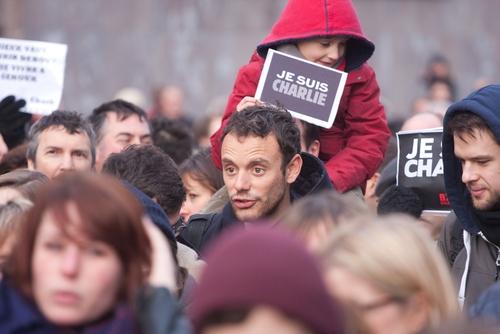When Sarah Palin talked about the “death panel” provisions residing within the Obamacare bill she was excoriated in the press and by the left for her inelegant and un-nuanced language, and –because she is the left’s Emmanuel Goldstein-in-training – for also being stupid and wrong, and a hick.
Meanwhile, the Senate Finance Committee quietly scrapped the provision to which Palin was referring. No, the words “death panel” had never existed in the bill, but Palin neatly identified the inevitable trend of government-managed healthcare toward rationing and the sort of “end of life counseling” sampled in the Veteran’s Administration Handbook called “Your Life, Your Choices,” of which the Wall Street Journal’s Jim Towey writes:
“Your Life, Your Choices” presents end-of-life choices in a way aimed at steering users toward predetermined conclusions, much like a political “push poll.” For example, a worksheet on page 21 lists various scenarios and asks users to then decide whether their own life would be “not worth living.”
The circumstances listed include ones common among the elderly and disabled: living in a nursing home, being in a wheelchair and not being able to “shake the blues.” There is a section which provocatively asks, “Have you ever heard anyone say, ‘If I’m a vegetable, pull the plug’?” There also are guilt-inducing scenarios such as “I can no longer contribute to my family’s well being,” “I am a severe financial burden on my family” and that the vet’s situation “causes severe emotional burden for my family.”
When the government can steer vulnerable individuals to conclude for themselves that life is not worth living, who needs a death panel?
Putting a human face on the fears of so many, blogger Kim Schratwieser -daughter of an older American and mother of a “special needs” American Princess – writes to her representative about her Obamacare concerns; it is a shout from her heart.
She’s a loving girl. She loves listening to music. She’s concerned when she thinks someone is sick or in pain. She’s been known to ask people in wheelchairs if they are okay. Most see that she is special and take her concern as it is intended and tell her that yes, they are okay. . . We bought her a pioneer type bonnet there and she calls that her princess hat. She would touch the hat and say ‘princess’ and I’d say yes and she’d say, ‘me?’ I’d tell her that yes, she is a princess. . . She is our princess and we don’t want to see her treated as anything less.
The time has come to ask the question; Under government-managed healthcare, will rationing and bottom lines usurp the primacy of love?
This administration likes to talk about “shared sacrifice” but those families with “special needs” kids and beloved elderly, families whose members live with full-blown AIDS or life-changing brain accidents, know all about sacrifice. They know all about putting aside the “me” for the greater good of the “other.” Likely they could teach this moralizing president the meaning of genuine -as opposed to rhetorical- sacrifice.
Will Obamacare ask the rest of the nation to “share the sacrifice” of such families as the Schratwieser’s by really supporting them -with their extra needs, extra expenses, and their extra willingness to love, and to love, and to love? Or will government health boards determine that families asking the nation to subsidize the health needs of the less useful and productive members of society -often the most uncomplicated among us- are selfish wastrels dipping too deeply into the public coffers?
If Kim Schratwieser’s story leaves you cold, what about this 26 year old blogger, Chelsea Zimmerman, who is paralyzed from the chest down? She declares on her blog that she will never accept an embryo-destroying “cure” for her condition and writes:
Despite being in a wheelchair I still live a relatively “normal” life. I still have the love of my family and the ability to love in return. Apart from working for my parents, I do a number of volunteer duties in my parish and my community. I am a self avowed pro-life activist, doing what I can to help defend the dignity of human life in my community and the nation. I want to help others, especially the youth to realize their Christian vocation to love as God loves and thus build up a culture of life in the world! I have a great life because I’m a human being, dammit, and I know my life has value!
Zimmerman recently wondered at a ruling in Australia which gave Christian Rossiter, 49 year-old quadriplegic, the legal right to starve himself to death, if he so chooses. Since winning that court case, Rossiter -perhaps finding meaning and usefulness as the “champion of other quadriplegics who no longer find life worth living,” has decided to seek further medical advice before killing himself; “there’s a possibility,” he says, “I could still be dissuaded.”
There is some irony in Rossiter choosing to live so that he might be a “right-to-die” advocate, but beyond the irony is the powerful testament to the worthiness of life and individualism, both of which are threatened to be subsumed in the hazy notions of rationed healthcare and the “common good.”
The “special” people in our society are actually very useful to us; in truth, they are gifts. They force us to slow down for them, to take the focus off ourselves, to be thankful for what we have, to be generous with our time. They teach us patience and humility. Some teach us how to look at the world through innocent, not cynical, eyes. Others teach us about intrinsic human worth, about the mysterious spiritual richness that comes with suffering, about the dignity of being truly vulnerable, which puts us at the feet of mercy.
The lives of disabled or “special” people challenge us to look at things that are not always pleasant and fine, and to find the lovable person who still resides beneath all the medical trappings. If we take that challenge, and dare to love them, we will be led into something much deeper than mere materialism and cost-effectiveness, into something that cannot be entered into a ledger, or bottom-lined.
How terrifying that must seem to our bureaucrats who (when they are efficient) are famously, even stereotypically, “all about utilitarianism;” they weigh costs against the perceived or codified “values” and then make decisions as to whether something or someone gets the funding they need to survive. Our “differently-abled” bring the great intangible gift: value-defying wisdom. They help to save us from our ignoble and destructive self-obsessions, and that makes them highly useful, indeed.
Can the ghoulish death-advocates posing as “Science Czars” who advise President Obama really be counted on to care about all the little and big, young and old princes and princesses who require more from their families (and thus will require more from the government under Obamacare)? When we’re already seeing acknowledgment of healthcare rationing, what chance will these “special” among us have?
These are deeply moral questions, being asked by hard-working people whose concerns are being trivialized -and who are being described as swastika-carrying mercenaries and agitators- by other, more elite people who like to moralize, but who won’t give straight answers; they give soundbite-sized assurances, wrapped in platitudes.
In the past five years I have lost two brothers, and two brothers-in-law who were in every sense my true siblings; one died of AIDS after a long, long battle. Another died after thirty years of severe disability brought on by a stroke. Another died of an aggressive cancer for which advances in treatment are being made. One died of plain-old congestive heart failure, after job-related lung injuries. They were each the beneficiaries of healthcare providers and programs that allowed them to live their lives -the challenging lives they had- until they reached their culminations. Their deaths were not hastened by “compassionate” needles and pills that came wrapped with the message that they were useless burdens to society and therefore dispensable and unimportant.
President Obama and the Democrats, and their media minions are in a bit of a snit, just now; they have thus far been prevented from passing 1,000 pages of nearly incomprehensible legislation on their own terms, and without the “vigorous debate” to which they pay deceitful lip service. Those demanding debate and genuine dialogue have been identified as “racist” or “fascist” –anything but “reasonably opposed people” arguing in good faith.
This administration and their supporters, who respond to concerned constituents with variations of “shut up” and “trust us,” and “we know what’s best for you,” cannot possibly know what is best for Kim Schratwieser’s princess, because they do not know her. They cannot possibly know what is best for Chelsea Zimmerman, because they cannot gauge how indispensable she is to those who love her. The value of my own family’s fallen princes is incalculable without factoring the insistent vector of love, which Obamacare cannot do.
Chelsea Zimmerman writes that her life is “realitively ‘normal'” and her scare quotes are appropriate. Who can define what makes a life “normal,” and why would we want a government to make that call for us? Our lives run courses both predictable and unique. Perhaps “normal” should only pertain to the notion that all of us are entitled to the lives we have, regardless of how unusual, challenging, strange, ironic or downright wasteful they might seem to the rest, and to live those lives with love given primacy, even over our bottom lines.
UPDATE: Via Margaret Cabannis over at Inside Catholic, an inspiring story on the primacy of love and why it matters – why allowing life to be born, and loved in this world, matters.
Ed Morrissey links to some sad news on government health care and inefficiency.











